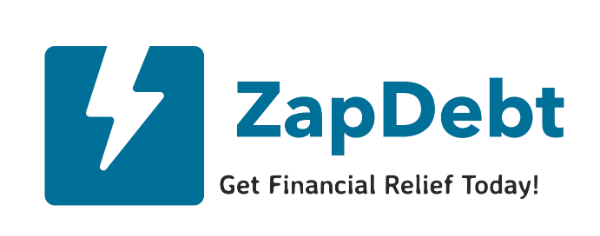What is Debt Restructuring?
Debt restructuring is a financial strategy that involves renegotiating the terms of existing debts with creditors. This can be initiated by the debtor or the creditors, but ultimately, both parties need to agree on the new terms. The process can involve one or multiple debts and may result in a reduction of the total debt, a lower interest rate, or an extension of the repayment period. It is often used as an alternative to bankruptcy, as it allows the debtor to maintain some control over their assets and may have a less severe impact on their credit score.
Debt Restructuring vs Debt Review
Debt restructuring and debt review are two different approaches to managing debt, and it’s important to understand the differences. Debt restructuring is a more informal process that involves negotiating directly with creditors to modify the terms of your debts. This can be initiated by either the debtor or the creditors and does not involve any legal proceedings.
On the other hand, debt review is a formal legal process that is overseen by a court or a registered debt counsellor. In South Africa, for example, the National Credit Act regulates the debt review process. During debt review, a debt counsellor assesses your financial situation and develops a structured repayment plan, which is then submitted to your creditors for approval. Once approved, the new repayment plan is legally binding, and creditors cannot take any legal action against you as long as you stick to the plan.
Voluntary Debt Restructuring
Voluntary debt restructuring is when the debtor takes the initiative to approach their creditors and propose new terms for their debts. This is often done in an effort to avoid default or bankruptcy. The debtor may propose a reduction in the total debt, a lower interest rate, or an extension of the repayment period. It is then up to the creditors to decide whether or not to accept the proposed terms. Voluntary debt restructuring can be a proactive way to address financial difficulties before they become unmanageable

Advantages of Debt Restructuring
Debt restructuring can be a lifeline for individuals and businesses facing financial difficulties. Here are some of the key advantages:
- Avoid Bankruptcy: One of the most significant benefits of debt restructuring is that it can help you avoid the severe consequences of bankruptcy, such as asset liquidation and a long-lasting negative impact on your credit score.
- Lower Monthly Payments: By renegotiating the terms of your debt, you may be able to secure lower monthly payments, making it easier to manage your finances.
- Reduced Interest Rates: Debt restructuring often involves negotiating a lower interest rate with your creditors, which can save you a substantial amount of money over the life of the loan.
- Flexible Repayment Terms: Debt restructuring can provide more flexible repayment terms, such as extending the loan period or even introducing a payment holiday, giving you breathing room to improve your financial situation.
- Preserve Business Relationships: For businesses, debt restructuring can help maintain valuable relationships with suppliers and creditors by demonstrating a commitment to meeting financial obligations, albeit under new terms.


- Improved Cash Flow: Lower monthly payments and reduced interest rates can lead to improved cash flow, allowing you to focus on other important aspects of your life or business.
- Asset Retention: Unlike bankruptcy, where assets may be sold off to pay creditors, debt restructuring allows you to keep your assets while you work on improving your financial situation.
- Less Harmful to Credit Score: While debt restructuring can still impact your credit score, the effect is generally less severe than bankruptcy or defaulting on a loan.
- Psychological Benefits: Being in debt can be extremely stressful. Successfully restructuring your debt can provide psychological relief and a sense of accomplishment, knowing that you’ve taken a proactive step towards resolving your financial issues.
- Potential for Debt Forgiveness: In some cases, creditors may agree to forgive a portion of the debt as part of the restructuring agreement, although this is generally more common in business debt restructuring.
Disadvantages of Debt Restructuring
While debt restructuring can offer much-needed relief for individuals or businesses in financial distress, it is not without its drawbacks. Here are some potential disadvantages of debt restructuring:
- Credit Score Impact: Debt restructuring can have a negative impact on your credit score. Even if your creditors agree to the new terms, they may report the debt as “restructured” or “settled” rather than “paid in full,” which can lower your credit score.
- Longer Repayment Period: Extending the repayment period can result in lower monthly payments, but it also means you’ll be in debt for a longer time. Additionally, you may end up paying more in interest over the life of the loan.
- Tax Implications: In some cases, the amount of debt that is forgiven or reduced during debt restructuring may be considered taxable income.
- Creditor Reluctance: There is no guarantee that your creditors will agree to the proposed terms. Some creditors may prefer to take legal action or sell the debt to a collection agency.
- Potential Legal Costs: While debt restructuring is generally less costly than bankruptcy, there may still be legal fees or other costs associated with negotiating and formalizing the new debt terms.

By understanding these advantages, you can make a more informed decision about whether debt restructuring is the right option for you
Debt Restructuring South Africa
In South Africa, debt restructuring is a regulated process aimed at helping individuals and businesses manage their financial obligations more effectively. The National Credit Act governs the process, ensuring that it is fair and transparent. South African consumers can approach registered debt counsellors to help them negotiate new terms with their creditors. This often involves consolidating multiple debts into a single, more manageable monthly payment with reduced interest rates. For businesses, the Companies Act provides mechanisms for corporate debt restructuring, often involving negotiations with multiple stakeholders.
Small Business Debt Restructuring
Small businesses often face unique challenges when it comes to managing debt. Limited cash flow and fewer assets can make it difficult to meet financial obligations. Debt restructuring can be particularly beneficial for small businesses for several reasons:
- Cash Flow Management: Restructuring can free up cash that can be reinvested in the business.
- Supplier Relationships: Maintaining good relationships with suppliers is crucial for small businesses. Debt restructuring shows a commitment to paying off debts, albeit on new terms.
- Business Continuity: By avoiding bankruptcy, small businesses can continue operations without the stigma and legal complications that come with insolvency.

Is Debt Restructuring a Good Idea?
The suitability of debt restructuring depends on individual circumstances. If you find yourself unable to meet your current financial obligations but have a reasonable expectation of being able to meet revised terms, then debt restructuring could be a good idea. It’s less damaging to your credit score than bankruptcy and allows you to retain your assets. However, it’s essential to consider the long-term implications, such as the total cost of the debt after restructuring and the impact on your ability to borrow in the future.

Types of Debt Restructuring
- Loan Modification: This is the most straightforward type of debt restructuring, involving a change in the terms of your existing loan, such as extending the loan period or reducing the interest rate.
- Debt Consolidation: Multiple debts are combined into a single loan with a lower interest rate and longer repayment term.
- Balance Reduction: In some cases, especially with unsecured debts like credit cards, the creditor may agree to reduce the total amount you owe.
- Forbearance: Your creditor allows you to temporarily stop making payments without incurring penalties, giving you time to improve your financial situation.
- Asset-Based Restructuring: Particularly relevant for businesses, this involves using assets as collateral to secure more favourable loan terms.
- Voluntary Arrangements: Both parties agree to new terms without involving the courts, often resulting in a more flexible and less adversarial process.
Understanding these different types can help you decide which form of debt restructuring is most suitable for your situation
Restructuring Your Debt
Restructuring debt involves negotiating with creditors to modify the terms of your loans. This can be a complex process, and it’s advisable to seek professional advice to ensure you’re making the best financial decision.
